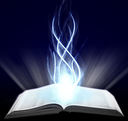 Not A Religion What does it mean to be Jewish? What is Judaism? If the High Holiday season triggers existential questions, this would probably be one of the foundational ones? And furthermore, is there a God? What or who is the God that dominates the pages of the prayer book and the Torah that we will engage with for hours at synagogue during the holidays? If God exists, then why is She/He/It so illusive? If God doesn’t exist, why do intelligent people spend so much time and energy celebrating a delusion? And furthermore, why so many questions? Why am I so ambivalent in my relationship to my religion? Here is why! Because we think like Christians. You are Jewish but you are most likely thinking about yourself like a Christian would. [The-Jewish-Nation-Lives-Long-Sleeve-TShirt+85-3617-920x800.jpg] What do I mean? The late, Rabbi Zalman Schachter Shalomi of Boulder Colorado, used to say that we are like pickles. Our lives turn out to be like the pickle juice we marinate in. In America, in a Christian majority society, in a Christianity dominated culture, we have all been marinating in Christian pickle juice, as it were. what is the mental framework we have available to us for understanding our own Jewish identity? Yes, a Christian framework. Remember Hans Christian Andersen’s Ugly Duckling? When it comes to understanding our own identity, many of us are ever so subtly the Swan gosling among the ducks. No wonder we are ambivalent. What is the hallmark of Christian identity? “Religion”. Christianity is a religion, by definition. It is based on a person’s relationship to God. Jesus, the son of God, died on the cross on our behalf, Christians claim. You will attain your Salvation, spiritual satisfaction, your “enlightenment”, once you accept Jesus’s love into your heart. You will be a good Christian once you follow the god-Jesus as a role model. A Christian’s relationship to God defines his or her identity, a religious identity by definition. The culture we marinate in, is thus obsessed with the god-relationship as a mark of personal virtue and religiosity. What defines a Jewish person’s identity? Bloodline. You are either born a Jew or you choose to join the blood lineage. When a person converts into Judaism he or she are not asked to accept God into his or her heart. The convert is asked to step out of his or her birth-lineage and enter the Jewish lineage by taking on a new name, “so-and-so, son/daughter of Abraham and Sarah (our original ancestors)”. Whether or not you believe in God or have a relationship to God is irrelevant to your being Jewish, bloodline is. How do Christians view Jews through their framework? As a variation on Christianity, another kind of religion, an outdated religion at that, but nevertheless a religion. There is the Christian religion, the Muslim religion, other religions and Judaism is in that lineup. How do Jews identify as being Jewish? As a people - unless of course you are a Jew who has primarily marinated in a Christian dominated culture. Judaism is not a religion, it is a peoplehood. I submit that you and I are not interested in attending Rosh HaShannah “religious” services. Our deeper interest is in having our “Knesset”, our gathering with our Jewish brothers and sisters to connect with our history and our traditions. Whether you believe in, comprehend of, worship, or love God, or whether you disbelieve in, object to, ridicule, or even hate God, is immaterial to the purpose of attending High Holiday services. And furthermore, it is irrelevant to your Jewish identity. As a Jew you are a member of the Jewish people, and it is an unwavering identity. As a people we have the three “L”s in common: land, language and legacy. The land of Israel, the Hebrew Language and our collective legacy, our story of origin, the Torah. We will attend services this year to tap into the 4000 year long flow of our shared land, language and legacy, together with our tribesmen and tribeswomen. And sometimes when we gather, God may show up in our midst as well - or not. We may touch upon a sacred moment at services - or not. But whether or not we do, I feel that we always successfully dip our minds and hearts into our people’s collective lifestream and draw nourishment from it. This Rabbi will be so bold as to permit you, at least during this season, to ignore the majority culture view of you. No, your Judaism is not a religion. Instead I invite you to explore your identity on your own terms, as a tribesman/woman with a 4000 year old land, language and legacy. It is literally your birthright. About that, please have no ambivalence. May you have the sweetest and happiest Jewish New Year. Shannah Tovah U’Metukah, Rabbi Reuben Modek
0 Comments
 Rosh HaShannah is the termination of a period and the opening of a new and fresh one, a new year, a new page. The word for termination in Hebrew, Hasal - חסל, when scrambled spells the word Salah - סלח, forgive. The previous year is being terminated and we transition into the new year by forgiving the hurts of the past. Sounds simple doesn’t it. But is it really? At times forgiving and moving on, letting go and letting God, is the hardest feat in the universe, and yet it is the call of the season and of the holiday. [School-Bullies-Hate-and-the-Road-to-Forgiveness.jpeg] In a bit over a week, when the moon will have waned and vanished, we will gather to celebrate the beginning of a new year. We will sing, recite prayers, and rejoice in new beginnings. We will enjoy one another’s company, share thoughts and ideas, reconnect with the yearly tribal wave of significance and delight. At the end of services we will dip apples in honey and touch the sweet flavor to our palates as a way of blessing the months ahead with the hope for sweetness, ease, health, success, wellness for ourselves and our families. Our time-tested tradition highlights an unescapable truth, though. It is that the celebrations’ experiences of lightness and joy correlate directly to the weightiness of the old-year baggage we will have discarded. How? by forgiving and letting go, or perhaps by confronting and then letting go, or maybe by asking forgiveness for words or deeds deeply regretted. Some conversations will be of asking forgiveness, others will be about communicating a grievance and others simply offering forgiveness despite pain that is still gnawing inside. Whichever way the clearing goes, the task at hand is liberating one’s self from unwanted soul shackles before the gates to the New Year open wide. “Teshuvah, Tefilah and Tzedakah”, Interpersonal Clearing, Praying and Giving allow us an internal oil change and spiritual engine tune up before the next yearlong journey, teach the sages, the journey of 5779. May we so be blessed. Shabbat Shalom, Rabbi Reuben Modek Rosh Hashanah Services
Sunday, September 9th – 7:00 PM – 8:30 PM Monday, September 10th – 9:30 AM – 12:30 PM; followed by Kiddush Yom Kippur Services Tuesday, September 18th – 6:00 PM – 7:30 PM – Kol Nidre Wednesday, September 19th – 9:00 AM – 1:00 PM; 5:30 PM – 7:30 PM Location: Union Art Center 2 Union St, Sparkill, NY 10976 Children’s holiday activities included Services Lead by Rabbi Reuben Modek Accompanied by Our "Moody Jews" Musical Ensemble Mindful Jewish Community for the Open Minded Makom HaLev Community with Hebrew Learning Circles 845 348-9810 www.HebrewLearningCircles.org  Facing the Book Of Live Rabbi Yohanan said: three books are opened on Rosh HaShannah... (Talmud Bavli, Rosh HaShannah, chapter 1, page 16b) אמר רבי יוחנן: שלשה ספרים נפתחין בראש השנה..." (תלמוד בבלי, ראש השנה פרק ראשון, טז:ב) [Book of life.jpg] While I have come to recognize traditional parables, such as this one, are but metaphors, or mere "book covers", for wiser and deeper a message, I never truly understood nor liked the Rosh HaShannah three books parable. New Year Day is a holiday to rejoice in the birth of the entire world, a universal birthday, literally. However it is also, according to the sages, The Day Of Judgement on which each one of us, based on his or her merits, will be added to a list in one of these books. You will be entered into the Book Of Life if you preformed only good deeds, the Book Of (premature) Death if you have done something awful, or the Middle Book for those whose good and bad deeds are balanced. In the Middle Book you occupy the gray zone of neither here nor there, where most of us are likely to end up. Here is why I am uneasy with this system. Entry into the book of life seems so out of reach for a mere mortal, why then dangle it in front of me, “this is a mean tease, God”. The book of death is plain scary. And the middle book is just so darn mediocre and lacking distinction. Couldn’t there be for example the book of fun, or the book of depth, or the book of love? Additionally, the entire enterprise of judging and labeling people by simple moralistic categories seems a bit beneath the Omnipotent, Omnipresent and Omniscient God. We are mortals after all. Can’t we get a break, perhaps some kudos for navigating life to begin with, which is not always so simple? So I must admit that the Talmudic system never sat well with my spiritual intuitions, until a recent realization. The books are more real than one may think in this Facebook dominated age. In the past decades, for the first time in history we live in a technological and cultural environment where our lives and deeds are recorded in writing multiple times on any given day. The imaginary heavenly record-keeping system, a metaphor that has for millennia encouraged us to reevaluate our conduct on a yearly basis, now resembles physical reality more than ever before. With emails, texts, twitter, social media, and Facebook serving as admissible evidence in civil and criminal court, the procedures of the heavenly Day Of Judgement seem much more tangible, the metaphor an apt one indeed. In fact our everyday choices do accumulate, and not only in heaven, to paint a picture of meaning, a record of honor, or shame or a mixture of both. In the era of Facebook the need to “face our actions” has become much more poignant and the ability to conceal our actions much more difficult. Yes, the meaning of our lives and the joy we derive from it while on the journey, does require an awareness of and a tending to our “written” record, whether in the electronic cloud, the heavenly ledger, or both. The innate human gift of consciousness is the ability to engage in personal and spiritual review of our record, teaches us the Talmudic Rabbi Yohanan. Whether or not our recored sufficiently passes the test of conscience, is the challenge we face each year as the New Year comes around. When it does, then we are written up in the “Book Of Life”. Facing, reviewing and correcting each our personal record toward a life worth “posting” about is the deeper meaning of the full traditional Rosh HaShannah greeting: “May you be inscribed and sealed in the Book Of Life, לשנה טובה תחתמו ותכתבו”. May it be so, Rabbi Reuben Modek |
AuthorRabbi Archives
February 2024
Categories |
 RSS Feed
RSS Feed